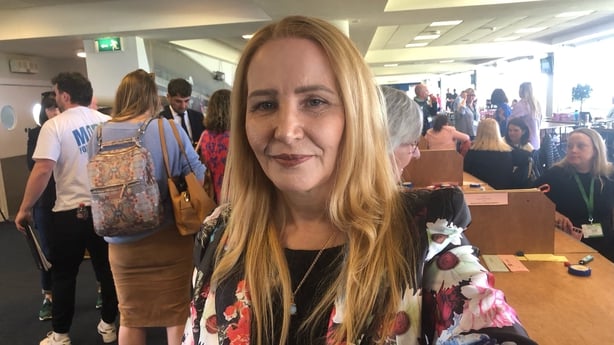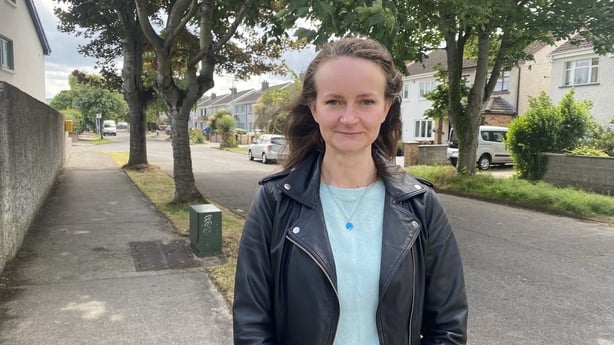World
Record number of migrant candidates elected to Councils

A record number of candidates from migrant backgrounds have won seats in the local elections.
This follows a record number of candidates who moved here from another country, or born to parents who did, contesting council elections this year.
According to the Immigrant Council of Ireland the number of candidates from a migrant background rose from 56 in 2019 to over 100 this time out.
With a few seats left to fill, migrant political participation co-ordinator at the Immigrant Council of Ireland, Teresa Buczkowska estimated that the number of these candidates elected could double.
“We are expecting around 17 or 18 candidates to be elected,” Ms Buczkowska said.
A father and son’s “passion for politics”
This year Fine Gael ran 16 candidates with a migrant background in the local elections, up from six in 2019.
At the time of publication, seven had been elected, with a possible eighth still in contention in the Navan electoral area where Councillor Yemi Adenuga is hoping to secure re-election.
Two of the party’s successful candidates making the headlines are father-and-son duo Baby and Britto Pereppadan, who were elected to South Dublin County Council in Tallaght South and Tallaght Central yesterday.
Baby Pereppadan moved to Ireland from India in 2001 to join his wife Jincy, who was employed as a nurse in Tallaght Hospital (now Tallaght University Hospital) six months before.
He first ran as an Independent local election candidate in Dublin South in 2009, before running as a Fine Gael Candidate in 2014 and again in 2019 when he won a seat.
“I have a passion for this,” Baby Pereppadan told RTÉ News, “I have to serve the community, I like this.”
We need your consent to load this rte-player contentWe use rte-player to manage extra content that can set cookies on your device and collect data about your activity. Please review their details and accept them to load the content.Manage Preferences
A key concern of his, he said, was “anti-social behaviour” and he wants to see a second Garda station opened in Tallaght.
“My aim is that we will push for that anyway” Mr Pereppadan.
As for his son Britto, this general election was his first foray into politics.
A doctor at Tallaght University, the 24-year-old attributes his interest in medicine to his mother, and his passion for politics to his father.
“My Dad has really been my biggest inspiration to get into politics, it wasn’t something that I always wanted to pursue from a young age, but over the last couple of years, since Dad was elected in 2019 in Tallaght South that’s when I really thought about potentially pursuing a career in politics,” he said.
The father and son duo also see the benefits of working in neighbouring districts.
“I think a lot of people aren’t aware of the boundaries between Tallaght Central and Tallaght South,” Britto Pereppadan said.
“Up until this point Dad’s just been getting calls from anywhere in Tallaght, and to be fair to him, he hasn’t been rejecting anything, he’s just been doing whatever he can for anyone in Tallaght, at least now when he’s getting those calls he can say, well actually that area is my son’s area, I’ll pass that message on to him!”
First black Councillor on Cork City Council
The Green Party also ran 16 local election candidates this time around.
Among them is Honore Kamegni, who last night fulfilled his electoral promise to “make history as the first black man on Cork City Council”.
“I’m the first and I am delighted,” Mr Kamegni said.
Originally from Cameroon in central Africa, he moved to Ireland in 2002 and to Cork in 2006.
He worked for An Post for the past 16 years and spent 14 of those as a postman in Douglas and Rochestown.
Well used to going door to door, Mr Kamegni said that he “knocked at 15,000 doors from the rural to the city and everyone was very, very encouraging”.
“I think the people of Cork city electing me shows that they reject all the hatred, all the hostility that’s going on online, I think we are one,” Mr Kamegni said.
“Here I am, the fourth campaign and third time re-elected”
Labour ran 11 candidates from migrant backgrounds in this year’s local elections, up from four in 2019.
Three of the 11 secured seats and two were newly elected candidates – Helen Ogbu in Galway City East and Thomas Joseph in Dún Laoghaire.

The third was election veteran Elena Secas who was elected in Limerick City East for a third time.
Originally from Moldova, Ms Secas said: “Limerick is my adopted city now, I have been living here longer than in my own country, this is where I work, this is where I raise my family and I just love Limerick”
“If you look at the population of Ireland where over 50% are women, if you look at the percentage who are not born in Ireland but live in Ireland now which is around 12% and 20%, I think we lack some democratic representation both locally and nationally and that needs to improve,” Ms Secas said, but she noted that this year has seen an increase in the numbers contesting.
Fianna Fail also ran 11 candidates from migrant backgrounds this year, People Before Profit-Solidarity ran four, and the Social Democrats ran three.
At the time of publication, no figures were available from Sinn Féin.
Trends
According to the Immigrant Council of Ireland, in 2019 over half of all candidates from a migrant background ran as Independents, but by 2024 this was down to one in three.
“We have learned from the 2019 elections that migrant candidates have a much higher chance of being elected if they run as party candidates,” Teresa Buczkowska said.
“We also see that in (this years’) results, every single candidate that was elected is a party candidate.”
The Council also saw an increase in female migrant candidates, with woman making up 55% of candidates from a migrant background in 2024, up from 45% in 2019.
“People have come here and made Ireland their home, they are working here, they are contributing to the Irish society”
It also observed greater diversity among candidates, with candidates from South and Central America competing for the first time.
It is also looking differences in voting patterns depending on where you are in the country.
“One very interesting observation that we have noticed this time around, is that the majority candidates that were running in urban areas were elected and not that many candidates that ran in the rural areas were elected, and that is a conclusion that we have to reflect on, and we have to think about it: What does it mean for diversity in politics?”

“Migrant candidates got a lot of support from Irish people”
Ms Buczkowska said there was “unprecedented levels of violence and harassment” against local election candidates in general, “but migrant candidates were disproportionately targeted by that.”
However, Ms Buczkowska said that many candidates from migrant backgrounds also reported receiving high levels of support and encouragement while campaigning.
“If you looked at the discussion, especially on social media, you could believe that actually the hostility is so strong that we were worried about the safety of candidates but we were happy to see that actually the opposite happened, that migrant candidates got a lot of support from Irish people,” Ms Buczkowska said.
All four candidates we spoke to said that their campaigns were largely positive.
Baby Pereppadan said that he while experienced some racial abuse during his campaign in 2009, including “somebody throwing eggs at my windscreen”, and again in 2019, it largely ceased after he was first elected.
“In 2024, when I was dropping the leaflets and knocking on doors, I didn’t get that many issues, and I am very happy for this,” Mr Perappadan said.
In Cork, Honore Kamegni said he was warmly received by those he met in person, and the only hostility directed at him during the campaign was “online (from) people who were hiding behind the keyboards”.
In Limerick, Elena Secas said that people in the city knew her well after ten years in local politics and “the reception on the doorsteps was fantastic”.
However, Ms Secas acknowledged that not all candidates from a migrant background shared the same experience.
“People have come here and made Ireland their home, they are working here, they are contributing to the Irish society,” Ms Secas said.
“I know some candidates had a really tough time on doorsteps and that’s not right, that needs to change.”










